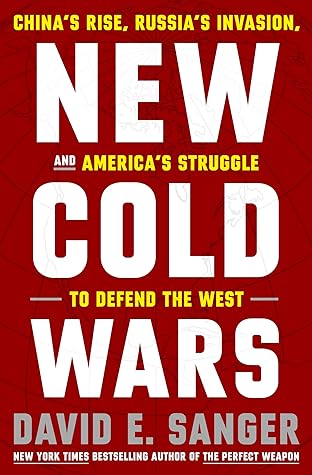More on this book
Community
Kindle Notes & Highlights
“There was this assumption in the past,” Neuberger told me later, “that governments had access to perfect information. But today it’s reversed. Companies have all the insight.”
Key to that was the almost universally held assumption that Russia and China—a fast-declining power and a fast-rising one—would integrate themselves into the West in their own ways. Each, it was argued, had an overwhelming national interest in keeping its products, profits, and financial interactions flowing, even with geopolitical adversaries. Economics would ultimately trump nationalism and territorial ambition.
clearly the decision to go ahead with Nord Stream 2 sent a message to Putin: Invade, wait a year, and all will be forgotten. Business will return to normal. Europe’s decision—especially Germany’s—was a green light for Putin to regroup and try again to bite off a chunk of Ukraine when conditions looked ripe.
“What is stunning about it,” noted Evelyn Farkas, the Pentagon’s senior official for Ukraine in the Obama administration, “is how afraid our allies are about facing Russia without the United States.”
the arc of American power bends toward collaboration with allies,
In contrast, China and Russia have few real allies, just partners of convenience, starting with each other.


